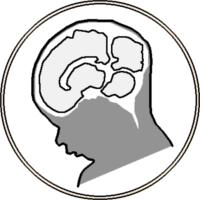Gholipour, Ali, Nasser Kehtarnavaz, Richard Briggs, Michael Devous, and Kaundinya Gopinath. 2007. “Brain functional localization: a survey of image registration techniques”. IEEE Trans Med Imaging 26 (4): 427-51.
Abstract
Functional localization is a concept which involves the application of a sequence of geometrical and statistical image processing operations in order to define the location of brain activity or to produce functional/parametric maps with respect to the brain structure or anatomy. Considering that functional brain images do not normally convey detailed structural information and, thus, do not present an anatomically specific localization of functional activity, various image registration techniques are introduced in the literature for the purpose of mapping functional activity into an anatomical image or a brain atlas. The problems addressed by these techniques differ depending on the application and the type of analysis, i.e., single-subject versus group analysis. Functional to anatomical brain image registration is the core part of functional localization in most applications and is accompanied by intersubject and subject-to-atlas registration for group analysis studies. Cortical surface registration and automatic brain labeling are some of the other tools towards establishing a fully automatic functional localization procedure. While several previous survey papers have reviewed and classified general-purpose medical image registration techniques, this paper provides an overview of brain functional localization along with a survey and classification of the image registration techniques related to this problem.
Last updated on 02/27/2023
